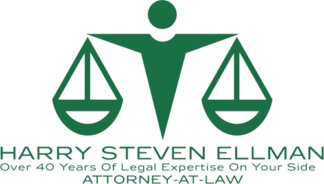Best Antitrust Litigation Lawyers in Farmington Hills
Share your needs with us, get contacted by law firms.
Free. Takes 2 min.
List of the best lawyers in Farmington Hills, United States
About Antitrust Litigation Law in Farmington Hills, United States
Antitrust litigation is a specialized area of law that focuses on promoting fair competition and preventing monopolistic business practices. In Farmington Hills, Michigan, and throughout the United States, antitrust laws are designed to protect consumers, businesses, and the economy from unfair trade practices such as price fixing, market allocation, bid rigging, and abuse of dominant market position. These laws are enforced at both the federal and state levels, and litigation can involve complex legal proceedings against companies suspected of violating antitrust statutes.
Why You May Need a Lawyer
Antitrust litigation is highly complex and often involves substantial financial stakes. You may need an experienced antitrust lawyer in the following situations:
- If you believe your business is a victim of unfair competition or monopolistic practices.
- If you are under investigation by state or federal regulators for suspected antitrust violations.
- If you have received a subpoena or civil investigative demand related to competition practices.
- If you are involved in a merger or acquisition that may raise antitrust concerns.
- If you need guidance on compliance with antitrust laws to reduce the risk of litigation.
- If a competitor has filed a lawsuit alleging anti-competitive behavior against your business.
- If you are a consumer or business affected by price fixing, bid rigging, or other collusive conduct.
Engaging a skilled attorney helps ensure that your rights are protected and provides the expertise necessary to navigate complex procedural and substantive legal issues involved in antitrust litigation.
Local Laws Overview
In Farmington Hills, Michigan, antitrust law is shaped by a combination of federal statutes and state regulations. Key federal laws include the Sherman Antitrust Act, the Clayton Act, and the Federal Trade Commission (FTC) Act. These laws prohibit practices such as restricting trade, monopolization, and mergers likely to reduce competition.
Michigan’s Antitrust Reform Act also plays an important role in regulating local business practices and protecting competition. State law closely mirrors federal provisions but may contain unique elements or more stringent requirements in certain cases. Both state and federal agencies, including the Michigan Attorney General and the FTC, have authority to investigate and litigate antitrust matters in Farmington Hills.
Because antitrust claims can involve simultaneous proceedings in state and federal courts, and because local precedents and enforcement priorities may vary, it is critical to consult with an attorney familiar with both Michigan and federal antitrust law.
Frequently Asked Questions
What is antitrust litigation?
Antitrust litigation refers to legal proceedings intended to enforce laws designed to promote fair competition and prevent practices such as monopolization, price fixing, and other anti-competitive conduct.
What are some examples of antitrust violations?
Common violations include price fixing, bid rigging, market allocation, monopolization, group boycotts, and unlawful mergers that reduce competition.
Who enforces antitrust laws in Farmington Hills?
Antitrust laws are enforced by both federal authorities such as the Department of Justice and the Federal Trade Commission, and at the state level by the Michigan Attorney General.
Can small businesses or individuals bring antitrust claims?
Yes, both small businesses and individuals can file private lawsuits if they have been harmed by anti-competitive conduct. Such claims may seek damages or injunctive relief.
What should I do if I receive a subpoena related to an antitrust investigation?
You should contact an experienced antitrust lawyer immediately. Responding to subpoenas or investigative demands without legal guidance can be risky.
Can antitrust laws apply to local or small-market businesses?
Yes, antitrust laws apply to businesses of all sizes, including those operating only in local or regional markets.
What penalties can result from antitrust violations?
Penalties may include substantial fines, damages awards, injunctive orders, and in severe cases, even criminal charges resulting in imprisonment.
How long do antitrust cases typically take?
Antitrust litigation is often complex and can take several months to several years to resolve, depending on the facts and legal issues involved.
What evidence is needed to prove an antitrust violation?
Evidence may include documentation of agreements, business records, emails, market analysis, witness testimony, and communications suggesting anti-competitive behavior.
How do I choose the right antitrust lawyer?
Look for a lawyer or firm with proven experience in antitrust matters, strong knowledge of federal and Michigan state laws, and a track record of success in similar cases.
Additional Resources
If you are seeking more information or support regarding antitrust litigation in Farmington Hills, consider these resources:
- Michigan Attorney General - Antitrust Division
- Federal Trade Commission (FTC) - Bureau of Competition
- Department of Justice - Antitrust Division
- State Bar of Michigan - Sections on Business Law and Antitrust Law
- Local business advocacy groups and trade associations
- Legal aid organizations that specialize in business and consumer rights
Next Steps
If you believe you have an antitrust concern or are facing potential litigation, consider these steps:
- Document any relevant events, communications, and transactions.
- Do not communicate about the matter with other involved parties without consulting a lawyer.
- Contact a qualified antitrust attorney with experience in both Michigan and federal law.
- Prepare to share relevant business records or correspondence with your attorney for assessment.
- Stay informed about deadlines and cooperate fully with legal counsel during investigations or litigation.
Seeking prompt legal advice is crucial in antitrust matters, as delays can compromise your position and limit your options for recourse or defense.
Lawzana helps you find the best lawyers and law firms in Farmington Hills through a curated and pre-screened list of qualified legal professionals. Our platform offers rankings and detailed profiles of attorneys and law firms, allowing you to compare based on practice areas, including Antitrust Litigation, experience, and client feedback.
Each profile includes a description of the firm's areas of practice, client reviews, team members and partners, year of establishment, spoken languages, office locations, contact information, social media presence, and any published articles or resources. Most firms on our platform speak English and are experienced in both local and international legal matters.
Get a quote from top-rated law firms in Farmington Hills, United States — quickly, securely, and without unnecessary hassle.
Disclaimer:
The information provided on this page is for general informational purposes only and does not constitute legal advice. While we strive to ensure the accuracy and relevance of the content, legal information may change over time, and interpretations of the law can vary. You should always consult with a qualified legal professional for advice specific to your situation.
We disclaim all liability for actions taken or not taken based on the content of this page. If you believe any information is incorrect or outdated, please contact us, and we will review and update it where appropriate.










